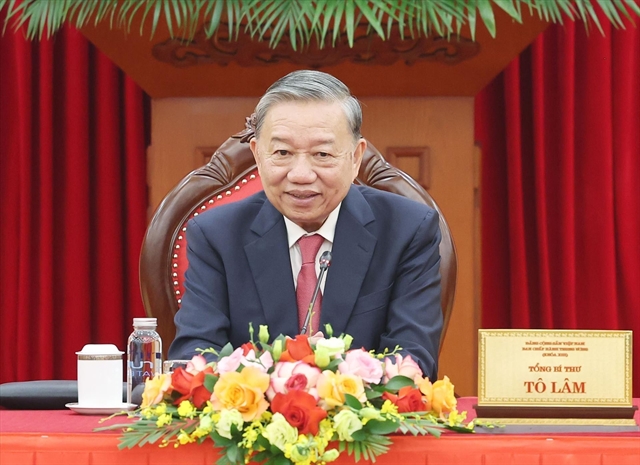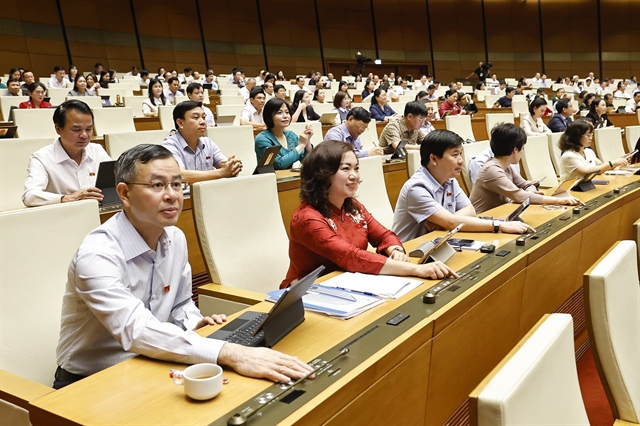 Politics & Law
Politics & Law

 |
| National Assembly deputies vote to approve the law. — VNA/VNS Photo Doãn Tấn |
HÀ NỘI — The Law on Teachers has been officially passed with an overwhelming 451 out of 460 National Assembly members voting in favour.
The law will take effect from the beginning of next year.
The Law on Teachers consists of nine chapters and 42 articles, four articles fewer than the draft law submitted to the NA at the beginning of the ninth session and eight articles fewer than the draft law submitted at the eighth session.
The law stipulates professional activities, rights and obligations of teachers; titles and professional standards of teachers; recruitment and use of teachers.
It also regulates salary and remuneration policies for teachers; training, fostering and international cooperation for teachers; honouring, rewarding and handling violations of teachers; and managing them.
The law stipulates that teachers are the core force of the education sector, have an important position in society, are respected, protected and honoured.
Teachers play a decisive role in ensuring education quality; they play an important role in building human resources, building a learning society, a digital society and building an advanced culture with a strong national identity.
One of the prominent policies of the Law on Teachers is salaries and allowances for teachers, which are defined in Article 23.
Teachers' salaries are ranked the highest in the administrative career salary scale system.
Professional incentives and other allowances depend on their job and region as prescribed by law.
Preschool teachers, teachers working in ethnic group areas, mountainous, border and islands areas or areas with especially difficult socio-economic conditions; teachers teaching in specialised schools; teachers in some specific fields and occupations are entitled to higher salaries and allowances than those working in normal conditions.
Salaries of teachers in non-public educational institutions are implemented according to the rules on labour.
Regarding authority to recruit teachers, for public vocational education institutions and public universities, teacher recruitment is carried out by the head of the educational institution. For non-public educational institutions, the recruitment is conducted by the head of the educational institution according to regulations on the organisation and operation of the educational institution.
For schools of the people's armed forces, the authority to recruit teachers is prescribed by the Minister of National Defence and the Minister of Public Security.
In the Law on Teachers, one of the important points is prohibiting forcing students to take extra classes in any form.
Some deputies suggested adding regulations prohibiting teachers from giving extra classes that violate the laws, and prohibiting extra classes for students that the teacher is directly teaching.
The NA Standing Committee said the draft law did not prohibit extra teaching, but only stipulates that teachers are not allowed to force students to participate in extra classes in any form.
The requirement that teachers are not allowed to teach extra classes to their students is currently stipulated in the circular on extra teaching and learning of the Ministry of Education and Training.
Some deputies proposed to clearly define the basis, principles, standards and conditions for recruiting teachers; and to assign the authority to recruit preschool and general education teachers to education management agencies.
The NA Standing Committee believes that teachers in public educational institutions are public workers, so recruitment must comply with legal regulations on public workers.
The draft law only stipulates some specific requirements in teacher recruitment, such as recruitment content based on professional standards and recruitment methods must include pedagogical practice.
Regarding recruitment authority, the law gives the education sector the initiative. Regarding the authority to recruit preschool and general education teachers, the Minister of Education and Training will provide detailed regulations. — VNS